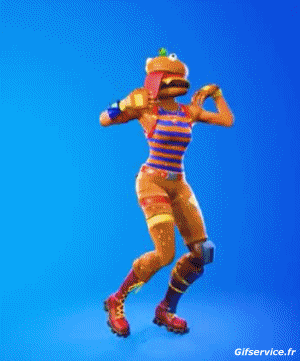In a pivotal decision that could expand copyright protection in the digital media world, the United States Court of Appeals for the Ninth Circuit reversed and remanded the district court’s dismissal of world-renowned choreographer Kyle Hanagami’s complaint alleging Epic Games, Inc. infringes part of Hanagami’s dance that is registered choreographic work with the U.S. Copyright Office.
The dispute hinged on the allegation by Hanagami that Epic Games infringed his copyrighted choreographic work on its Fortnite video game platform. Hanagami asserted that Fortnite’s “emotes,” which are virtual cosmetic items acquired using real world money that allow the player to perform a short action, most commonly a dance, bore an uncanny resemblance to his original choreography. The issues before the appellate court were how to properly apply the substantial similarity test to choreographic works and whether Hanagami sufficiently alleged substantial similarity between his choreographic work and the allegedly infringing Fortnite emote. What was not challenged is whether Fortnite had access to Hanagami’s dance as it had received a million views on TikTok and YouTube.

To determine whether there was a substantial similarity, the appellate court applied the “extrinsic test”, which is an objective comparison of specific expressive elements. Using this test, the court highlighted the importance of considering the collective arrangement of dance elements, rather than isolating them as individual, unprotected moves. In rejecting the lower court’s findings, which isolated the choreography to mere individual poses, the appellate court reasoned that “reducing choreography to ‘poses’ would be akin to reducing music to just ‘notes’” and that the lower court’s limited analysis is fundamentally at odds with the way courts analyze copyright claims for other forms of art.
The appellate court further agreed with Hanagami that “poses” are not the only relevant elements underlying choreographic work. Other elements like body position, shape, action, use of space, pauses, energy, canon, motif, contrast, and repetition are also relevant in assessing the choreographic work. These discrete and technical elements are analogous to elements that courts have recognized in the field of music, such as melody, harmony, rhythm, pitch, tempo, phrasing, structure, chord progressions, and lyrics. But the court cautioned that there is no need to specify a discrete universe of elements from which a claim for infringement can be built. Rather, it is the court’s task to compare the selection and arrangement of elements in the registered choreographic work with the allegedly infringing work.
Lastly, the court emphasized that the proper inquiry is not simply about the length of the copied materials, but instead whether the similarity constitutes a substantial portion of the work. The court clarified that the inquiries on whether the four-count of Hanagami’s work allegedly copied by Fortnite had a substantial qualitative significance to the overall registered five-minute choreography and whether the copied materials are the most recognizable and distinctive portions of his work are questions for the jury to decide on remand.
As the dust settles, it seems evident that the Ninth Circuit’s ruling has charted new territory in copyright law. This decision sets a precedent for the broader realm of copyright law, especially concerning the digital replication of choreographic works. It delineates a clearer path for choreographers to protect their creative dance routines in the increasingly digital landscape of entertainment and art.
